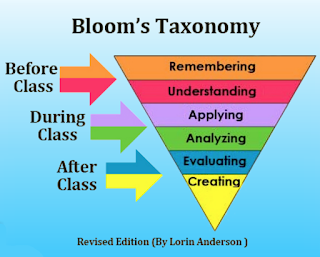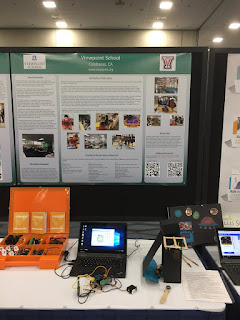Conference Time!
Learning and the Brain hosts a fabulous conference each year, connecting educators, scientists and neuroscience experts from around the globe in conversation around groundbreaking research and classroom strategies. Below are just a few of my takeaways.
In other words:
What is antiquated? Cut it!
What is classic? Keep it!
What is contemporary? Create it!
Gaminess equals:
interesting decisions, that are tied to consequences
goals (plural!) that are well defined
quantifiable feedback
an underlying model or system that can be described and understood
Students can build their own interactive games in mixed reality using a free tool from MIT called TaleBlazer
Heidi Hayes Jacobs - Author and Education Leader
Focus on competencies rather than subjects. She challenged educators in elegantly simple language to to consider what to cut, what to keep and what to create.In other words:
What is antiquated? Cut it!
What is classic? Keep it!
What is contemporary? Create it!
Eric Klopfer - MIT professor
Learning is optimized when it is, as Seymour Papert put it, it is "hard fun." How can you add to the "gaminess" of your class?
Gaminess equals:
interesting decisions, that are tied to consequences
goals (plural!) that are well defined
quantifiable feedback
an underlying model or system that can be described and understood
Students can build their own interactive games in mixed reality using a free tool from MIT called TaleBlazer
Jonathan Bergmann - Flipped Learning Network
How can we change the fact that 60% of classroom learning is the presentation of new content and 30% is review? How might we spend more time applying knowledge or creating content? What if flipped learning techniques were the foundation of a new educational model, leaving more time for application, analysis and evaluation of information, rather than just remembering and understanding? Flipped learning is not just watching videos for homework.
Adam Gazzaley - Neuroscientist and founder of Neuroscape
The future of machine learning is building tools that elevate our minds andAkili Interactive is on the cusp of a scientific, research backed, non-drug treating for ADHD using video games!
Chris Rodgers - Tufts professor
Science helps you make sense of the world around you. Engineering is using your understanding of science to change the world. Identifying the problem you need to solve is often the hardest part. Encourage divergent and creative thinking in the classroom.
Pooja K. Agarwal - Retrieval Practice.org
Research shows that strategies such as active recall and retrieval practice increase retention. Rereading notes can produce a false sense of fluency but self testing, flashcards and quick writes help make content "skip." Spacing and interleaving new content with old is also important.




Comments
Post a Comment